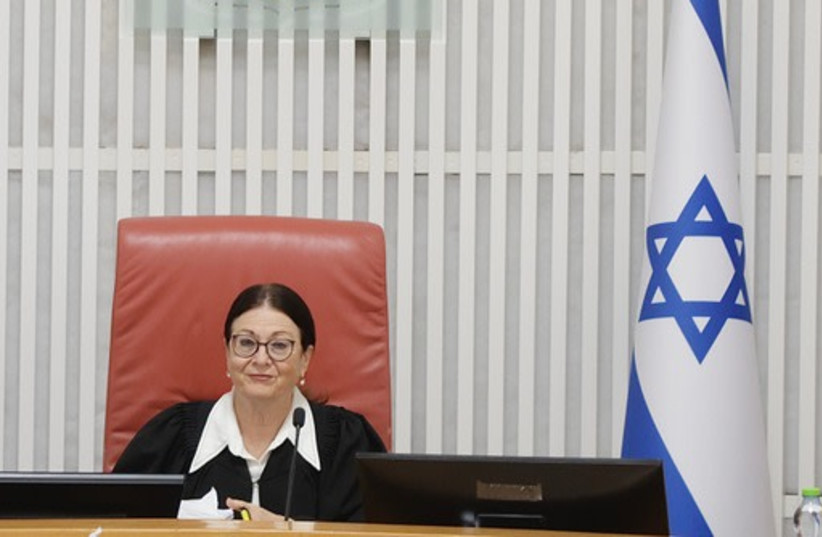The High Court of Justice hearing on the Judicial Selection Committee, which was supposed to take place on Tuesday, has now been set for October 22 after being postponed last week, the High Court announced Wednesday.
The hearing was originally to be presided over by Justices Anat Baron, David Mintz, and Yael Willner. Baron will have already retired by the new date, and it is to be presided over by Willner and Justices Ofer Grosskopf and Alex Stein.
As the respondents, Justice Minister Yariv Levin and the government can issue further documentation for the case by October 9.
The hearing is being held as a result of a petition filed by the Movement for Quality Government in Israel, opposition leader Yair Lapid, and others, demanding that the court order Levin to convene the Judicial Selection Committee, which he has refused to do until the judicial reform is enacted.
A costly delay
The delay in convening the committee means that by the end of the year, Israel could be facing a shortage of more than 50 judges, putting the judicial system in a crisis as it struggles to keep up with its caseload.

In fact, by the time of the October 22 hearing, the High Court will be down two justices, as Baron retires on October 12 and Supreme Court President Esther Hayut is set to retire on October 16.
The makeup of the committee
Currently, the Judicial Selection Committee is made up of nine members: the justice minister, another government representative, two MKs, two Israel Bar Association members, the Supreme Court president, and another two Supreme Court justices. Seven out of nine votes are required to appoint a judge.
Levin’s original plan to reform the committee would have it consist of 11 members, with the coalition maintaining the majority. His proposal passed its first reading in the Knesset, but talks have been ongoing to make further changes before the second and third readings.
After the first part of the judicial reform – the law to limit the reasonableness clause – was passed in the Knesset in July, Levin said the reform agenda would next address the Judicial Selection Committee, and that it would be advanced in the Knesset’s winter session, which begins in October.
There are obstacles that may delay this, however, such as United Torah Judaism’s position that it would stall the advancement of any additional reform bills until the proposed draft law is passed. As a result, it is premature to know when the bill regarding changes to the committee will be passed and when Levin will agree to convene the committee.
